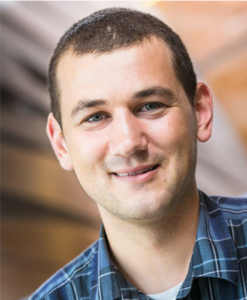
The virtual P4 Expert Roundtable Series took place April 28-29th and was kicked off with four engaging live keynote presentations with vibrant Q&As from the audience. The recordings of the keynotes and all of the plenaries and informative presentations are available now on demand.
Keynotes
 Nate Foster, Assistant Professor of CS at Cornell University and a member of the P4 TST, opened the Series with “P4 at the Edge”, an overview on the state of P4 in 2019 and 2020, highlighting new features, new targets, new applications including congestion control and DDoS mitigation on P4-enabled switches. He went into detail about specific key developments underway in the various P4 working groups and described how to become part of the P4 Consortium and contribute as part of the community.
Nate Foster, Assistant Professor of CS at Cornell University and a member of the P4 TST, opened the Series with “P4 at the Edge”, an overview on the state of P4 in 2019 and 2020, highlighting new features, new targets, new applications including congestion control and DDoS mitigation on P4-enabled switches. He went into detail about specific key developments underway in the various P4 working groups and described how to become part of the P4 Consortium and contribute as part of the community.
 Stefan Heule, Software Engineer, Google, presented “Using P4 and P4Runtime for Optimal L3 Routing”, and opened with the concept of how in an ideal world, datacenter networks are organized hierarchically, leading to elegant routing solutions where traffic is distributed equally across all available links. However, the ideal data center is not reality. Realistically, equal distribution of traffic more often results in suboptimal routing. Heule discusses how at Google, P4 and P4Runtime are used to overcome these inefficiencies by modeling the switch pipeline in P4 and exposing it to the central controller using P4Runtime. Building on this foundation, the controller computes weights using its global view of the entire network, allowing each switch to perform so-called unequal cost multipath.
Stefan Heule, Software Engineer, Google, presented “Using P4 and P4Runtime for Optimal L3 Routing”, and opened with the concept of how in an ideal world, datacenter networks are organized hierarchically, leading to elegant routing solutions where traffic is distributed equally across all available links. However, the ideal data center is not reality. Realistically, equal distribution of traffic more often results in suboptimal routing. Heule discusses how at Google, P4 and P4Runtime are used to overcome these inefficiencies by modeling the switch pipeline in P4 and exposing it to the central controller using P4Runtime. Building on this foundation, the controller computes weights using its global view of the entire network, allowing each switch to perform so-called unequal cost multipath.
 Chang Kim, Fellow and CTO of Applications, Barefoot Division, Intel, explored the “Future of Programmable Packet Processing”, opening with a discussion the history of programmable packet processing from the proliferation of industry standards to open source solutions, which enabled network owners to take control of their software. The next phase is where network owners take control of packet processing and Kim hypothesizes on the role of programmable packet processing in the future and its role in making networks better.
Chang Kim, Fellow and CTO of Applications, Barefoot Division, Intel, explored the “Future of Programmable Packet Processing”, opening with a discussion the history of programmable packet processing from the proliferation of industry standards to open source solutions, which enabled network owners to take control of their software. The next phase is where network owners take control of packet processing and Kim hypothesizes on the role of programmable packet processing in the future and its role in making networks better.
 Vipin Jain, CTO and Founder, Pensando Systems presented, “P4 Evolution - From Packet Processing to Message Processing”. He provided insight into how message processing can address an exciting new set of use cases with the potential for many uses. Jain discussed that as a community, there is an immense opportunity to define new and open standards for the IO processing domain. Jain, discussed some use cases, a possible architectural approach to get there, and highlighted some of the complexities and challenges
Vipin Jain, CTO and Founder, Pensando Systems presented, “P4 Evolution - From Packet Processing to Message Processing”. He provided insight into how message processing can address an exciting new set of use cases with the potential for many uses. Jain discussed that as a community, there is an immense opportunity to define new and open standards for the IO processing domain. Jain, discussed some use cases, a possible architectural approach to get there, and highlighted some of the complexities and challenges
In addition to the keynotes, there were five plenary sessions with in-depth, interactive discussions among industry experts on topics including how P4 as a language is evolving, how programmable data planes are enabling visibility into network conditions and P4 use cases in programmable switches, programmable NICs and operator networks.
The thirteen CFP presentations were delivered by P4 community members and explored a wide range of P4-related topics and experiences from congestion control and traffic classification to network security and building a network tester.
Check out all the video recordings and slides from presenters of the P4 Expert Roundtable Series now. Don’t miss this opportunity to learn about P4 and the impact it has made and is continuing to make on the networking industry.

